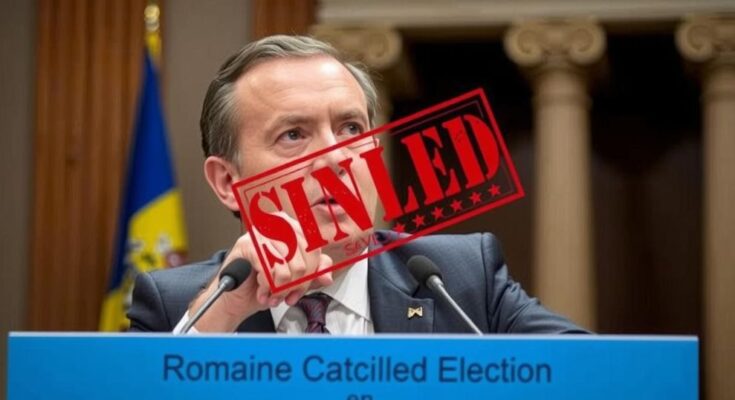Romania’s Constitutional Court canceled the presidential run-off election due to Russian propaganda interference. Intelligence documents indicated coordinated efforts to elevate far-right candidate Călin Georgescu. The court’s ruling, which nullifies the electoral process, has sparked significant political controversy and raised concerns about the integrity of Romania’s democracy.
On December 6, Romania’s Constitutional Court annulled the upcoming presidential run-off election between far-right candidate Călin Georgescu and centrist candidate Elena Lasconi, citing interference from a Russian propaganda campaign. The court’s decision, delivered two days before the scheduled run-off, nullified the entire presidential election process. Declassified intelligence documents revealed that Russia utilized “aggressive hybrid action” to manipulate the electoral outcome, raising concerns about the integrity of democratic processes in Romania.
The intelligence reports indicated that Georgescu’s potential victory stemmed from a coordinated social media effort involving 25,000 newly activated TikTok accounts just prior to the first-round vote. Moreover, allegations surfaced regarding irregularities in campaign financing related to Georgescu’s candidacy. Consequently, the Constitutional Court mandated the government to establish a new date for the presidential election and a revised electoral timeline.
Elena Lasconi expressed strong opposition to the court’s ruling, characterizing it as a severe blow to democracy in Romania. In contrast, Prime Minister Marcel Ciolacu supported the court’s decision, asserting that it was essential to annul the elections due to the significant distortion caused by Russian interventions. The first round of voting had resulted in Georgescu receiving 23% and Lasconi 19% of the votes, while Ciolacu trailed in third place.
The ruling by the Constitutional Court has raised alarms across the political spectrum, with AUR party leader George Simion denouncing it as a “coup d’état in full swing.” This unprecedented legal action has thrust Romania into a period of political uncertainty, prompting speculation about a potential new election in spring 2025. The implications of this decision are critical, given Romania’s strategic importance to NATO and the EU amid ongoing support for Ukraine, especially considering Georgescu’s proposals to reevaluate aid to Ukraine and NATO affiliations.
Romania’s political landscape has encountered significant challenges in recent months, particularly with the looming presidential elections. The involvement of a far-right candidate, coupled with allegations of foreign interference, has intensified scrutiny on vulnerabilities within the electoral process. The Constitutional Court’s intervention reflects concerns about national security and integrity in democratic practices, particularly in the context of Russia’s aggressive tactics seen in other nations. The potential for disinformation and manipulation in elections has become a paramount concern for governments worldwide, underscoring the need for vigilance in protecting democratic institutions.
In summary, the Romanian Constitutional Court’s annulment of the presidential run-off election underscores serious concerns regarding foreign interference and the integrity of democratic elections. The decision, supported by intelligence findings of Russian intervention, has significant implications for Romania’s political stability and democratic credibility. As the nation navigates this tumultuous period, it remains to be seen how the electoral process will unfold and what measures will be taken to safeguard the democratic framework.
Original Source: www.upi.com




